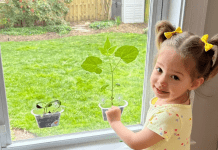We’ve all been there. The triggers are different but the experience of feeling like “a bad mom” is one most people can relate to. I hear this a lot from my patients and I’ve certainly struggled with that feeling myself. The problem is not the feeling. As a psychologist, I wholeheartedly believe in the importance of connecting with all of our feelings, including the painful and uncomfortable ones. Our feelings are informative and instructive.
The problem is that feeling like a bad mom has become a catch-all term for many negative and unpleasant feelings associated with parenthood. It’s a nasty label we ascribe to ourselves to encapsulate these unpleasant emotions. To use the language of Dr. Stephen Hayes, it’s “dirty pain” or the self-imposed judgmental story we tell ourselves about ourselves that leads to feeling worse.
So instead of layering on the judgment, here are some suggestions for 3 Ways to Cope When You Feel Like a Bad Mom.
3 Ways to Cope When You Feel Like a Bad Mom
1. Identify What You Are Truly Feeling:
Ask yourself, what do I mean by “bad mom.” What am I truly feeling? Perhaps “bad mom” means I feel guilty or maybe it means I feel overwhelmed. Maybe it means feeling frustrated, or impatient. See if you can remove the label of bad mom and connect to the feeling underneath. Journaling is often useful in sorting through your feelings.
2. Turn Toward the Feeling:
We have a tendency to turn away from painful events but when it comes to emotions, working through means turning towards your feelings. Yes, it’s can feel uncomfortable to sit with guilt, anxiety, or sadness, but feeling discomfort is OK and important. If you find it hard to connect with how you are feeling, see if you can locate the feeling in your body. Using your senses can be useful in tuning in and connecting deeper with your feelings.
3. Practice Self-Compassion:
Kristen Neff describes self-compassion as an active practice of directing kindness towards yourself, in a non-judgmental manner, which acknowledges that pain and difficult emotions are part of the shared human experience. Self-compassion is associated with less negative mood states such as anxiety or depression and greater emotional resilience. Practicing self-compassion in this context could mean meeting your critical thoughts with kind words or affirmations. Or it could mean adopting a mindfulness practice. For more ideas on self-compassion check out Dr. Neff’s website.

Motherhood is hard, and we make it so much harder on ourselves when we get stuck in a spiral of self-judgment and bad mom thoughts. So be kind to yourselves mommas, you deserve it!










![Lauren Engler: Mom of the Month [April 2024]](https://dcmoms.com/wp-content/uploads/2024/04/Lauren-Engler-218x150.png)




